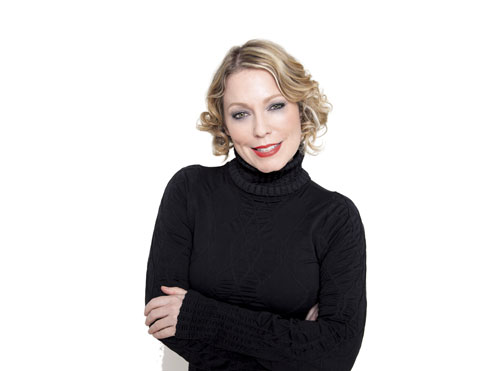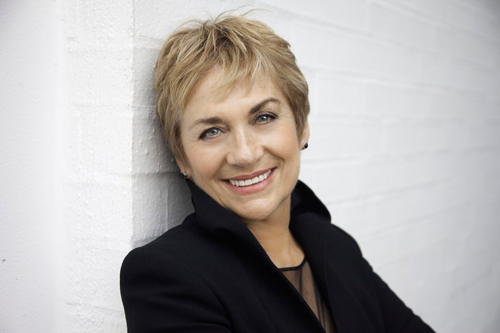Bean there
Andrew Smart used some smart thinking to give his two Espresso Workshop cafés that unique point of difference. Patricia Moore has his story.
Andrew Smart used some smart thinking to give his two Espresso Workshop cafés that unique point of difference. Patricia Moore has his story.
Spend an hour with coffee roaster Andrew Smart and you’ll come away with a whole new appreciation of that ‘cup of joe’; suddenly you’re aware of subtleties of aroma and taste – overtones of spice, dried fruit, a hint of toffee maybe. It’s about enjoying the moment.
Smart is passionate about coffee. So much so he’s built a business around it. But he’s not just roasting beans. Espresso Workshop in Auckland’s Parnell combines a roastery with a busy espresso bar and retail space selling a wide range of products designed to enhance the coffee drinking experience.
Then there’s Espresso Workshop Britomart, plus an online business supplying clients across the country with a range of single origin coffees and blends, and the latest in equipment.
“Online’s a great medium for us,” he says. “We’ve had a website since day one but it was overhauled a year ago and since then we’ve attracted a lot more traffic. While it’s still only a small part of the business it’s the one that’s showing most growth.”
Espresso Workshop is a third-wave coffee roaster, says Smart. “The first wave was the freeze-dried coffee post-World War II; the second was the development of the espresso culture and the emergence of lattes, mochas etc; and the third is more focused on appreciating coffee in an artisan sense – single origins, transparency in growing and production processes and roasting tailored to the coffee and the style of brewing.”
But Smart’s expertise as a roaster is only part of the process. A lot happens between the roasting and the drinking. “You can’t take a bad coffee and make it good but you can take a good coffee and make it bad. When you start looking deeply into coffee there’s so much more to it than just a cup of joe.”
Smart began his working life in town planning – not perhaps the most conventional path to the café industry – but an interest in food, which became more serious when he experienced European markets during a two-year trip to the northern hemisphere, had him decide on a career change and he signed on at a Devonport deli.
Barely a year later he launched SUJU, Auckland’s first specialist juice and smoothie bar, adding soup to carry the business through seasonal changes.
With no previous experience in running a business; there were challenges – chief of which was SUJU’s immediate popularity. “I reacted too strongly to the need for labour and probably overspent on staff just trying to keep up with demand. You need to have your wage percentage in check with a retail operation.”
He realises now greater effort should have gone into working more efficiently. “It takes a while to work these things out and it can be quite costly for a business.”
Success saw SUJU expanding to a second site – and another learning experience. “We thought it was a good position; unfortunately while it was close to the flow it wasn’t in it. It wasn’t a disaster but could have been.”
Smart had already begun “scratching the surface of the world of coffee,” and when the decision was made to sell SUJU he saw the wholesale coffee business as an attractive prospect. Rather than launching another enterprise he joined the team at Allpress NZ, learning as much as he could about roasting. “There’s no university for coffee roasting and this was very hands-on.
“I put my hand up to do cupping [tasting]; I put my hand up to do flavour notes. I really learned on the job.” After the pressure associated with running SUJU it was great doing a job he enjoyed, then going home and forgetting about work, he says.
But you can’t quell a true entrepreneurial spirit. “After a while I wanted to do more. I wanted to roast.” Smart’s initial café enterprise was an underperforming Parnell espresso bar bought in conjunction with a partner; a barista whose skills have earned him a number of industry awards. They turned it around in a year, sold the business and moved to a larger café where the intention was to have a kitchen, espresso bar and roastery, with his partner handling the café operation.
Success followed but it soon became apparent space was an issue and the roastery was moved across town. However, the dream to have a coffee ‘showroom’, complete with roastery, stayed with Smart and in 2010 he found the current Parnell premises. Espresso Workshop Britomart followed.
Connecting locally
Notwithstanding the lessons of his SUJU location experience, Espresso Workshop is back from Parnell’s main street (High rents mean that wasn’t an option). The coffee ‘geeks’ soon found their way there, but, perhaps not unexpectedly, the espresso bar was hard going at first. “People are very brand loyal, particularly with coffee. We came to Parnell to operate a roastery but we needed to create a local connection.”
There’s a big pool of coffee drinkers in the immediate area and distributing flyers that let people know what they were all about had a significant impact. “Word of mouth and social media has also been influential. We’ve had some really good results over the last year with every month building on the previous one.”
A little over a year ago, Smart bought out his partner in the Britomart espresso bar – he’d decided he wanted to focus on café operations. Both Espresso Workshop companies are now co-owned by Smart and his wife Erica Smart who assists in the management of the business as well as coffee roasting and food development. “Her background in a lab environment in the wine industry means she brings a scientific viewpoint to my practical methodology.”
Smart likes to take things cautiously. “Planning’s vital. Spend a lot of time on it. Having an idea is not enough. There are a lot of ideas out there and we know a lot of businesses fail. It’s really about executing the ideas properly, taking the right steps at the right time.
“Once you’ve started, you’ve started! A lot of people rush into things – I know people who’ve gone out and bought a café without talking to people like me who have experience in the industry.
“You need to be passionate about your product and you need to know your industry. Know what makes it tick, particularly if it’s a competitive industry like cafés or coffee roasting. Get it wrong and people won’t be coming back.”
He’s learned to work smarter. “It’s important to be hands-on and involved at the beginning but that’s very time hungry. Eventually you need to find the right people and delegate.”
The right people for Espresso Workshop are coffee ‘professionals’ not people looking for part-time work while they study for a career elsewhere, he says.
In a small market saturated with coffee roasteries, Smart says they’re trying to stick their head up above everyone else and have a real presence. “You need to have a point of difference or you’ll go unnoticed.”
And with barista training, and events like coffee appreciation adding the ‘workshop’ to ‘espresso’, Andrew Smart’s clearly on track to achieve that essential point of difference.
›› Patricia Moore is an Auckland-based freelance writer.
Email [email protected]




